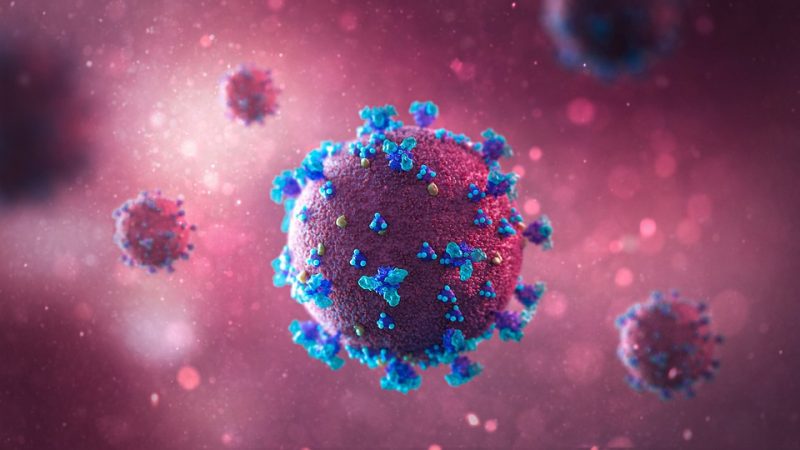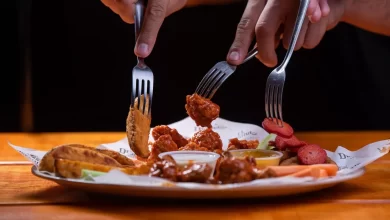
Coronavirus causes harmful antibodies?
(ORDO NEWS) — One small study found that severe and critical patients with COVID-19 produce autoantibodies that target a person, not a virus. Another study offers hope that influenza vaccines somehow protect against coronavirus. And an Italian physicist talks about a misunderstanding of statistics.
To stop the infection, the immune system produces antibodies to the SARS-CoV-2 virus. It seems that this mechanism is malfunctioning, and often: after COVID-19, antibodies are found in people that attack their own body, as in lupus or rheumatoid arthritis. Writes about this The New York Times.
The pattern was discovered by scientists from the American University of Emory. The results of the study are posted as a preprint, that is, the article has not yet been reviewed by independent experts and has not been published in scientific journals. But experts interviewed by The New York Times said that the authors of the work have a good reputation, and most importantly, there is nothing unexpected in the results.
Emory University tested 52 patients who were in serious or critical condition during their illness. Analyzes showed that almost half of them had elevated levels of antibodies to substances from the nuclei of their own cells, and this was more common in those who were especially sick.
Some of these autoantibodies affect blood clotting. Perhaps, including because of them, blood clots form with COVID-19. It is also possible that this is the reason or one of the reasons for the “protracted COVID-19”, when the symptoms of the disease do not disappear for months or now and then return.
Other viruses also cause the production of autoantibodies. Due to infection, cells die, their contents fall into the immune system - sometimes it confuses human proteins and other substances with strangers and “raises the guard.”
Autoantibodies are easy enough to detect in the blood, so scientists can figure out how common they are in COVID-19. It is possible that existing drugs for autoimmune diseases will work against harmful antibodies. But it is also possible that these antibodies or the immune cells that produce them remain for a long time, or even forever. Then those who have recovered may have chronic health problems.
Influenza Shot May Protect Against COVID-19
Back in the summer, officials (and the media) urged people to get vaccinated against the flu so that one epidemic does not overlap. A new study by Dutch scientists, the results of which were published in a preprint, points to another possible benefit of the flu shot: the doctors who gave it, less often their colleagues were sick with COVID-19. Scientific American writes about this.
Scientists checked which of the staff at the medical center at their university received the flu vaccine in 2019-2020. It turned out that by June 1, 1.33% of those vaccinated and 2.23% of those who did not get vaccinated had passed a positive test for coronavirus. The difference between the two groups was 39%.
However, this pattern does not prove that the flu vaccine prevents SARS-CoV-2 infection. Maybe vaccinated people simply behave more responsibly, and therefore less risk of infection. But the same scientists also conducted a laboratory experiment - perhaps it’s not just a matter of discretion.
The researchers took purified blood cells from healthy people, treated them with a tetravalent flu vaccine, and when the cells multiplied, they added SARS-CoV-2. The treated cells released more cytokine proteins that are involved in the immune response.
In theory, vaccines form adaptive immunity - protection against a specific pathogen, but earlier there was evidence that some of them also increase the overall resistance of the body. True, the results are inconsistent. Now in different countries there are studies or will soon begin, where they will test the effectiveness of the BCG vaccine.
So far there are more questions than answers. This is not to say that people need to be vaccinated against the flu in order not to get sick with COVID-19. But at least the vaccine will protect against the flu.
Why misunderstanding statistics has become a particularly important problem
The news of the pandemic is accompanied by different numbers, but these numbers need to be interpreted correctly. The theoretical physicist Carlo Rovelli discusses this in a column for The Guardian.
Rovelli begins with an incident at his institute. Several years ago, five people who worked there, one after another, fell ill with a rather rare non-communicable disease. The rest became alarmed and began to look for the reason. There used to be a biolaboratory in the building. But no toxic chemicals were found, and some employees decided to simply quit.
Rovelli told the story to a mathematician friend at dinner one day, who laughed and suggested a thought experiment. There were 400 tiles on the floor where the congregation dined. If you throw in 100 grains of rice, can you find a five-grain tile? Everyone answered that no, it is impossible, because there are four tiles for each grain.
But that was the wrong answer. Scientists have seen this by throwing rice. After each attempt, tiles with two, three, four and even five grains were found. Rice scatters randomly, randomly, and the wise professors made a statistical mistake. The same mistake earlier forced Rovelli’s colleagues to resign.
We operate with probabilities every day, but most of us have little understanding of them, as well as other concepts related to statistics. Probabilities are often equated with imprecision, but lack of knowledge does not mean that we know nothing at all.
We almost never have complete information. In these cases, statistics come to the rescue. Thanks to her, we realized that smoking is harmful, and asbestos causes disease. Without statistics, we would have no experimental science at all.
Statistics can guide us into a pandemic. There are no completely reliable ways to protect yourself from a virus, just like there is no guaranteed way to get sick, but statistics allow you to manage risks: we evaluate which actions are more dangerous than others. There is an important intermediate area between precision and total uncertainty. It is in this area that our life unfolds.
—
Online:
Contact us: [email protected]
Our Standards, Terms of Use: Standard Terms And Conditions.









